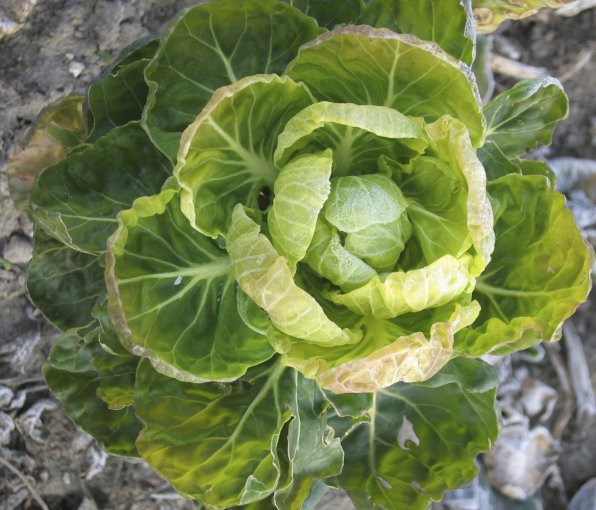Having sung the praises of the humble cabbage in a “Fresh Today” column a few weeks back, it seems appropriate to give a nod to its diminutive, more mildly flavored cousin, the brussels sprout. One of a handful of vegetables that improve in flavor after the first frost, brussels sprouts are being harvested in New Hampshire right now. The California-grown varieties are okay, but won't ever be as sweet as those grown here, close to home in our harsher climate.
If you've never seen brussels sprouts growing in the garden, they're quite the sight. The sprouts – essentially tiny cabbages – grow in a beautiful spiraling formation along the plant's stem. As many as 80 or 100 can grow on a single stem. If you're lucky, you might find full two-foot long stalks of brussels sprouts for sale at the farmers market. More commonly, you'll find the sprouts already cut off and ready to use. Either way, just look for tightly formed little orbs, bright green in color. Stems should be dry and green (not brown) and never slimy. Choosing sprouts that are all about the same size makes for more uniform cooking.
Brussels sprouts are a young vegetable; they've only been grown since the 17th century. They're one of 400 or more varieties of cabbage now in cultivation. They originated somewhere in northern Europe (whether in Belgium or not is uncertain) making their way to the United States in the 1800s.
Brussels sprouts seem to elicit strong opinions; people either love them or hate them. If you're a hater, give them another chance. Don't make up your mind until you've cooked some fresh, locally-grown brussels sprouts yourself, in your own kitchen.
Every bit as nutritious and healthful as other members of the brassica (cabbage) family, Brussels sprouts offer the same cancer-fighting benefits. They're low in calories (65 calories per cup) and rich in fiber, vitamin C, vitamin K, beta-carotene, vitamin B6, folic acid, thiamine and potassium. Some experts advise eating at least two or three servings of brassicas a week. At this time of year, it's difficult to choose, but brussels sprouts are a delicious option.
Steaming your sprouts is the fastest way to cook them and ensures that you get the full benefit of their nutrients. Trim the stems and remove any yellow or wilted leaves. By halving or quartering them, they'll steam in six or seven minutes and will be on your plate well before they emit that characteristic sulfurous odor we associate with cabbage.
For a fancy finish, try browning a little butter in a large skillet, tossing the steamed sprouts until they're well coated, then drizzling with a spoonful of balsamic vinegar. Of course, you can serve them steamed, straight up, with a pat of butter and a dash of sea salt.
My most favorite way of all to cook brussels sprouts, and the surest way of winning over naysayers, is to simply roast them. Cutting an “X” into the bottoms of the stems helps them to cook evenly and a bit more quickly. If you're in a hurry and the sprouts are on the small side, you can get along without that step. Toss with a little olive oil and roast them at 375 degrees for about 30 to 40 minutes, or until they're just starting to get a little crunchy and brown here and there. Shake the pan a couple of times during cooking. Sprinkle with sea salt and serve them hot, straight from the oven.
Once you have the basics down, and you've converted the reluctant members of the family, you'll be ready to get creative. Try a saute with bacon, garlic and a finish of apple cider vinegar. Steamed brussels sprouts are delicious with a squeeze of lemon juice and a sprinkle of fresh thyme. A hearty brown mustard also dresses them up nicely. For a richer option, try crumbling some good blue or Parmesan cheese on your simply steamed or roasted sprouts.
If you can't find brussels sprouts at the farmers market, ask for them. Remember, farmers grow what we buy. If you want lots of interesting options at the market, you need to voice your spirit of adventure and vote with your dollars.
Whatever you do, leave the frozen brussels sprouts at the grocery store. With this vegetable, fresh and in season is the only way to go.
Eleanor Baron lives, gardens, cooks and writes in Concord, New Hampshire, and stalks area farmers markets for fresh, in-season produce. She has a special passion for the more unusual, less appreciated “underdog” vegetables. Visit her blog at nourishingwords.net for more ideas and inspiration on incorporating healthy habits into your life.






















